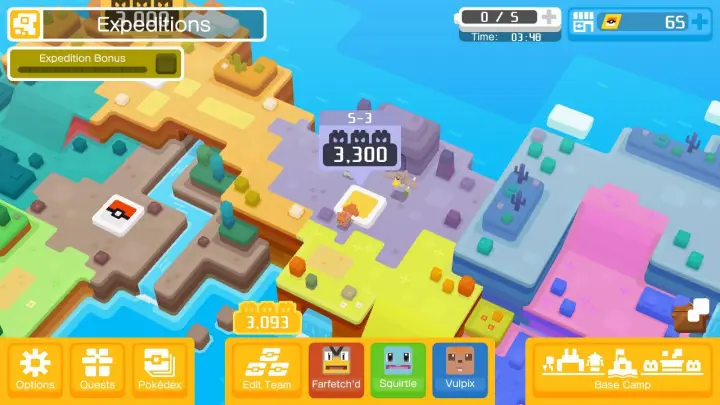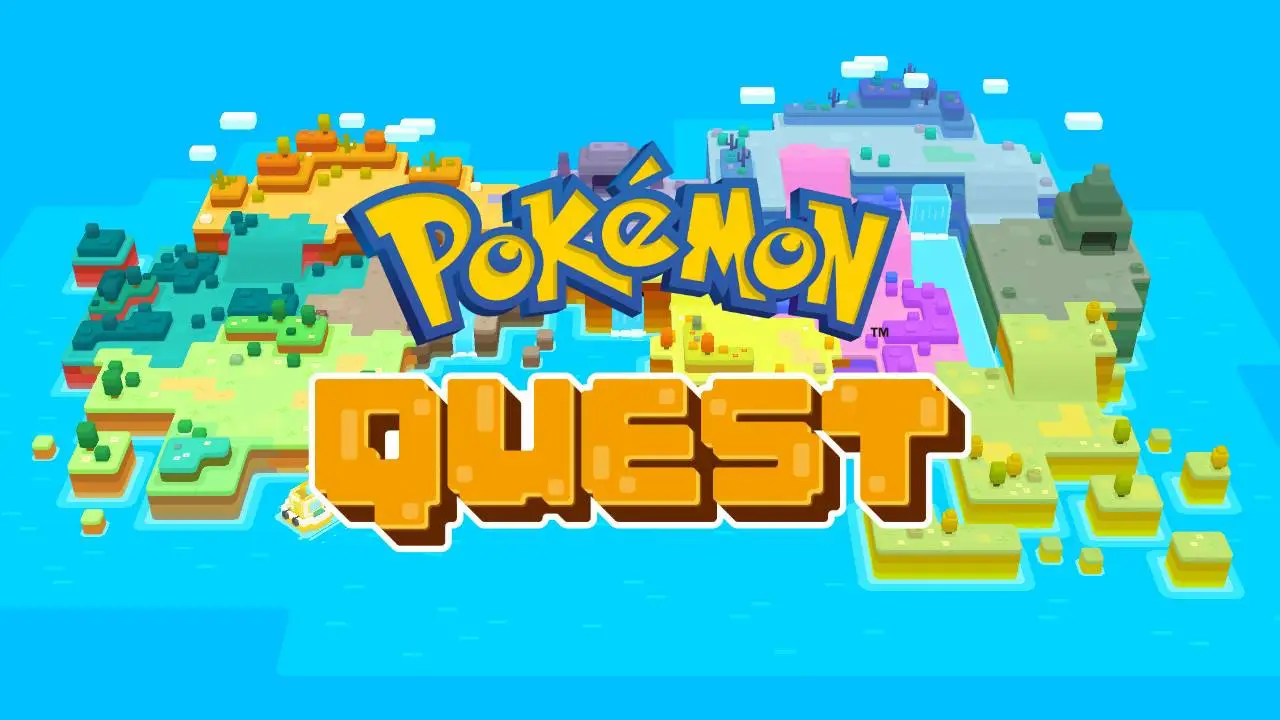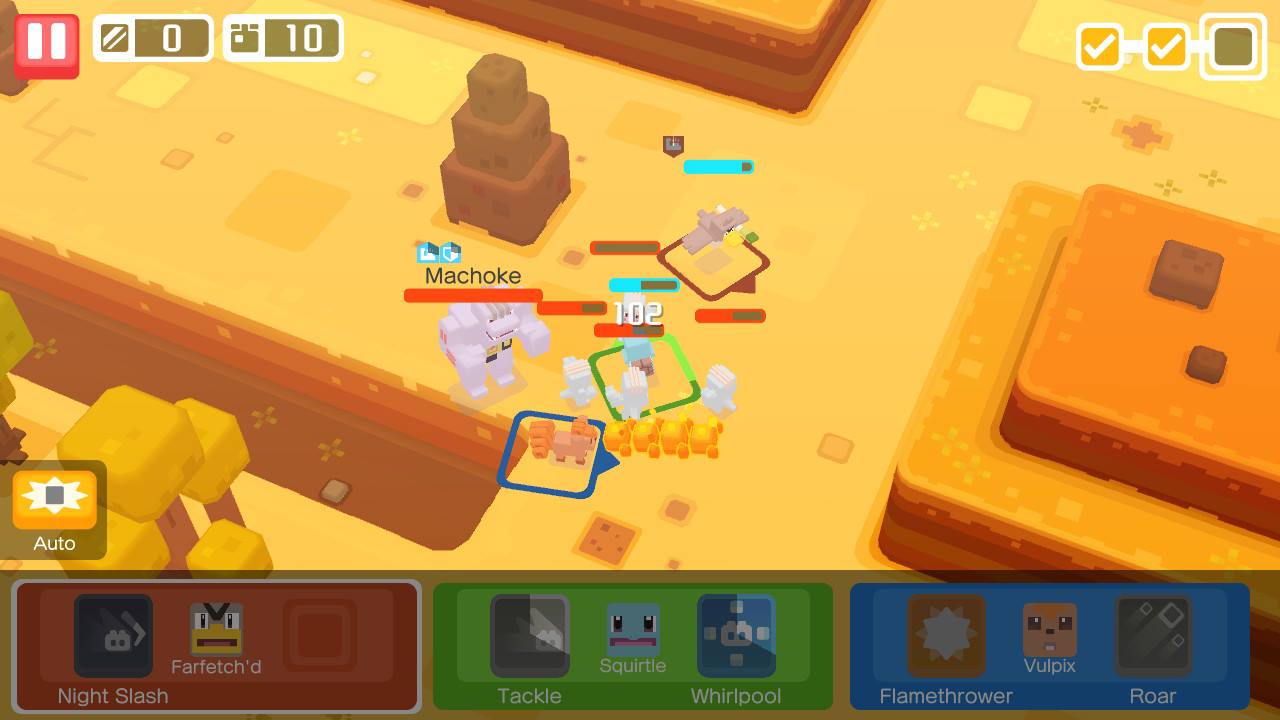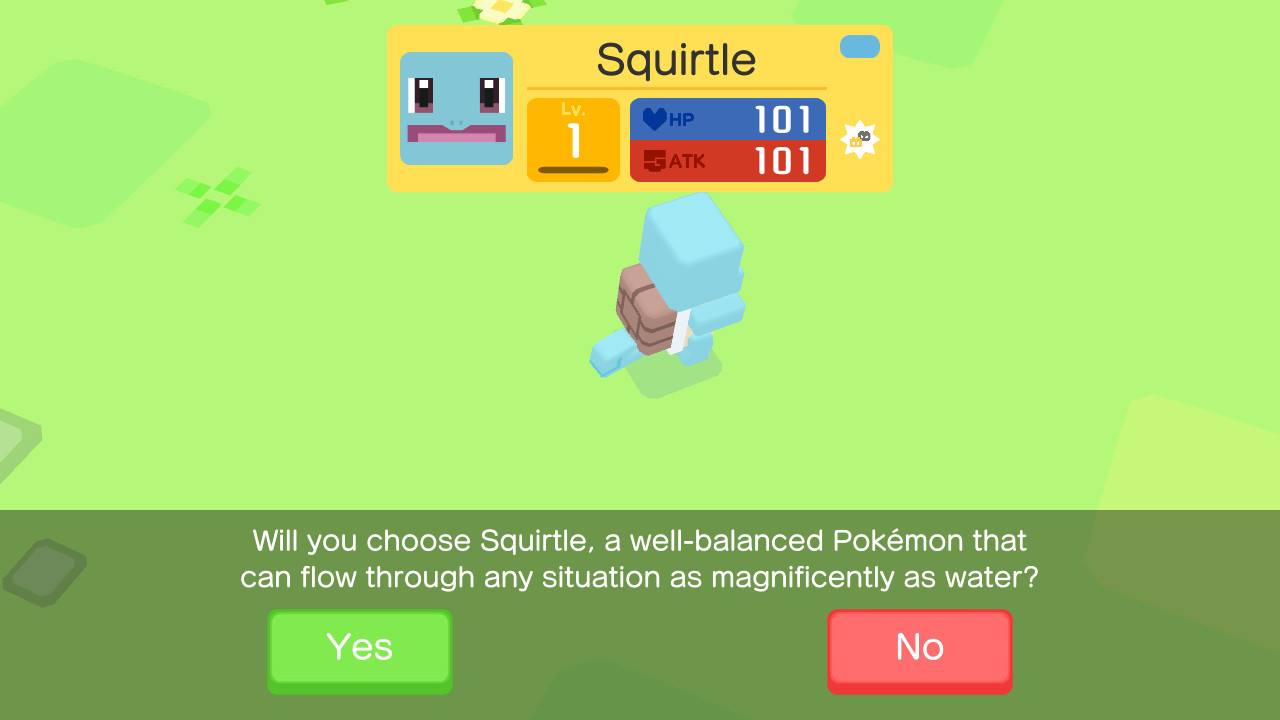In the simplest terms, Pokémon Quest is a mobile game on the Switch. Your ability to progress is tied, at least partially, to the same types of energy systems, recharges, and pseudo-cosmetic upgrades via in-app purchases that have all but dominated the mobile free-to-play space in recent years. That’s a tough break for anyone expecting something a bit less insistent on spending money, but when you compare it to its most direct ideological counterpart, Pokémon Go, Quest largely holds its own.
My Little Pokémon
Players will immediately notice the downright saccharine presentation of Pokémon Quest. All the old favorites — Pikachu, Squirtle, Charmander, etc. make their return, but everything in the world is made of multi-colored cubes with rounded edges. The visual flair resembles what you might get if you told a designer to translate Pokémon into the visual style of MineCraft and then dial the cute up by a few more notches. Those soft, friendly cubes feel appropriate here because Quest has also figuratively sanded the sharper edges off the core Pokémon experience. Here, your Pokémon don’t lose consciousness, they just get tuckered out (bless their little hearts). You haven’t made the trek to Tumblecube Island to capture these elemental critters, either. Instead, you cook them food and coax them into becoming your buddy.

Together, your PokéPals complete expeditions. These are largely automated segments, where your party of collected Pocket Monsters will seek out wild Pokémon to battle. You can control whether they dodge and when they use either of two special moves, but that’s the extent of your agency during the expedition. Instead, the bulk of the strategy (as it always has with Pokemon) is about team selection and preparation. This is really where Pokemon Quest begins to distinguish itself from Go.
The downright saccharine presentation of Pokémon Quest is oddly disarming.
While you start off with a single Pokémon, you quickly assemble a trio of buddies. You can outfit them with power stone upgrades, gathered on expeditions. These allow you to boost their stats far beyond their baseline, and ties into a few systems that are running in the background, like a “bingo” reward that allots your Pokés bonuses based on their arrangement of power stones. None of this is hugely important at first, but as you come up against tougher and tougher monsters, you’ll need to start exploring how to eke as much extra fighting power out of your core team as you canj.
Your time playing alternates between preparation and expeditions and you’ll spend a few minutes doing one, then the other, for however long you want – or at least until your supplies run out. Expeditions are organized, at least lore-wise, by your quadcopter drone. Your chief goal is to explore and record the island’s mysteries, so play time is limited by your drone’s battery life. You can only store a few charges at once, and you get a new one every 30 minutes. Since one loop of equipping your team and going on an expedition runs about ten minutes, you’ll be left with a deficit over time. That’s where the game’s micro-transactions enter the picture.
Pokétransactions
In this case, the bulk of the buy-ins are in the form of PM tickets. These can be spent to buy new things at the PokéMart, as well as recharge your battery, gather up gained items from a failed expedition, etc. Although you are gifted quite a few when you first start playing, you can burn through them pretty quickly. If you’re really having a great time with the game and want to keep pressing through expeditions, putting down money does open that up. And it won’t take much: a few bucks will get you several full charges of your battery. Some purchases also allow you to get additional decorations for your base camp, and these will increase the value of any one expedition, or grant other bonuses like carrying an additional charge in your battery pack. These more permanent upgrades are much more expensive, however, making them harder to justify.
Spending PM tickets wasn’t essential, but it did smooth out the play experience considerably. Whether it’s worth it to you, however, will depend on how compelling you find the core gameplay loop. Expeditions were fun enough, but not so much that we felt it necessary to put down anything extra. If you’re comfortable waiting you can easily get a couple hours’ worth of play each day without spending a dime.
Free-to-play elements feel out of place on the Switch, but will be unremarkable when the game comes to Android and iOS.
As mentioned above, the real meat of Pokémon Quest’s gameplay (as far as the player making meanigful decisions goes) isn’t really in the expeditions themselves anyway, but is more in the prep beforehand. Each dungeon has an array of Pokémon types endemic to the area. Ideally you will choose your party to best counter the Pokémon that you expect to find on each mission. If you match types according to the game’s recommendations, you can trigger a massive boost in power. In practice, however, your power stones tend to have the biggest effect and you’ll have to swap a lot of those out manually. Unfortunately, Quest doesn’t make the process easy. There’s a setting that allows you to auto-set power stones, for instance, but it won’t give you the best configuration for your current team, nor will it de-equip stones from Pokémon that are holding them. Playing well, then, means you’ll spend a lot of time in menus adjusting settings and loadouts, especially because you’ll get new and better equipment on almost every outing.
Beyond that, Pokemon Quest is inoffensive. It’s a cute, quirky game that will keep you busy without demanding too much. The free-to-play elements feel out of place on the Switch, but will be unremarkable when the game comes to Android and iOS devices in late June. It’s not quite the full-fledged Pokémon RPG that many players still await, but it neatly splits the difference between that and the lightweight Pokémon Go, which may be just the lazy summer pastime that some fans want.
Editors' Recommendations
- 3 retro classics to play on Nintendo Switch Online this weekend (May 3-5)
- Every rumored video game console: Nintendo Switch 2, PS5 Pro and more
- Pokémon Legends: Z-A: release date window, trailer, gameplay, and more
- Everything announced at February’s Pokémon Presents stream
- Mother 3 is finally on Nintendo Switch … but only in Japan





